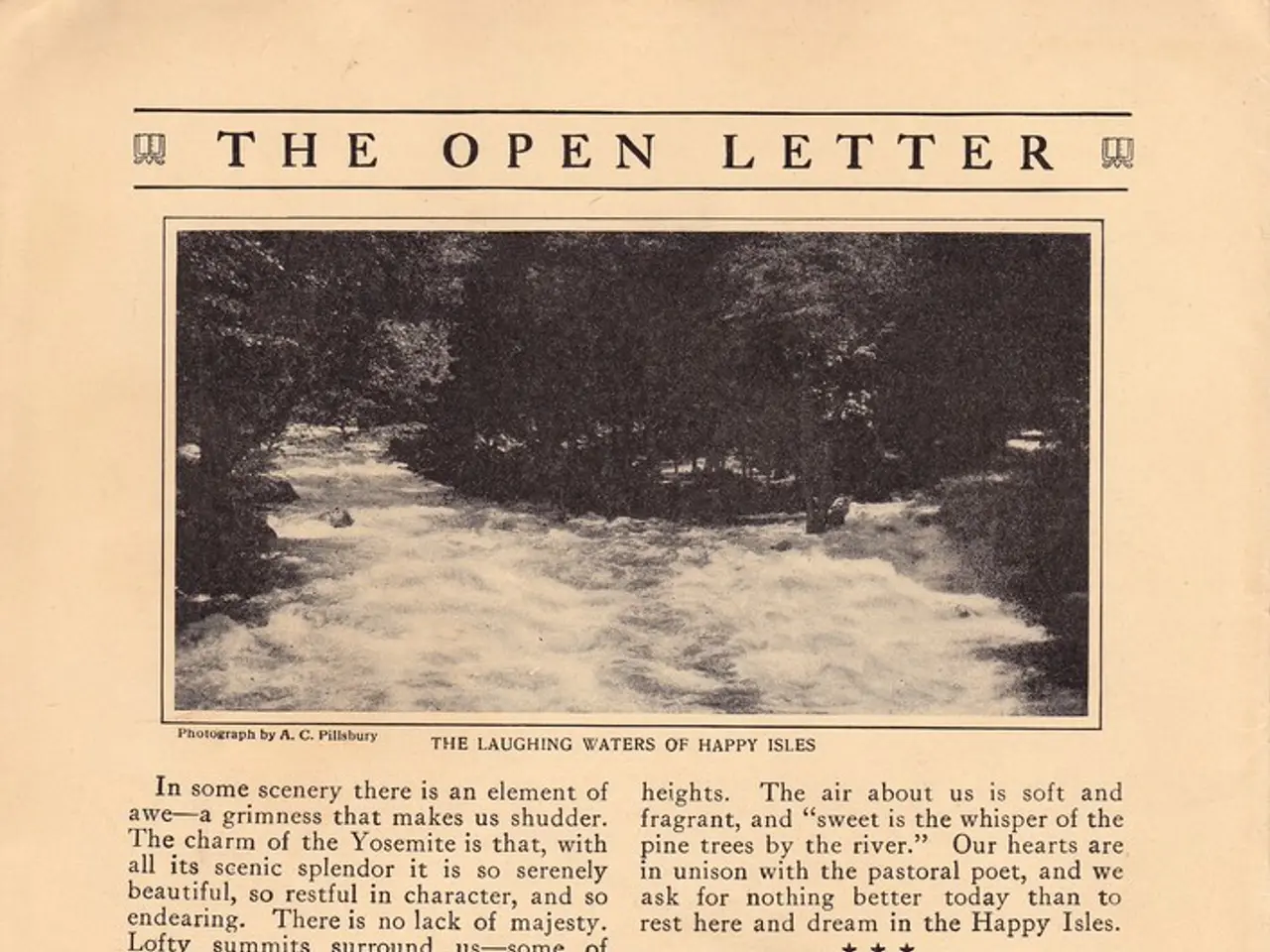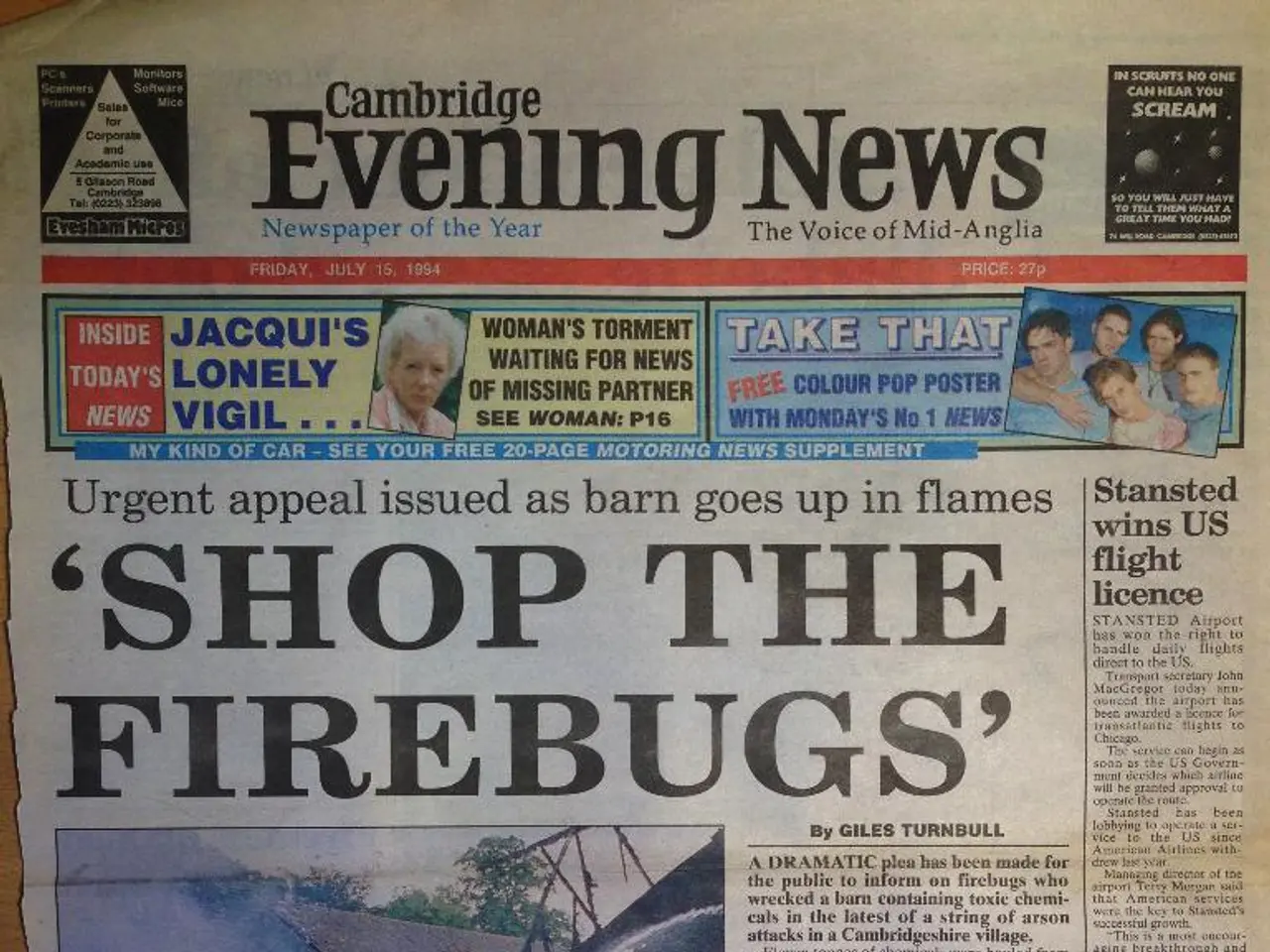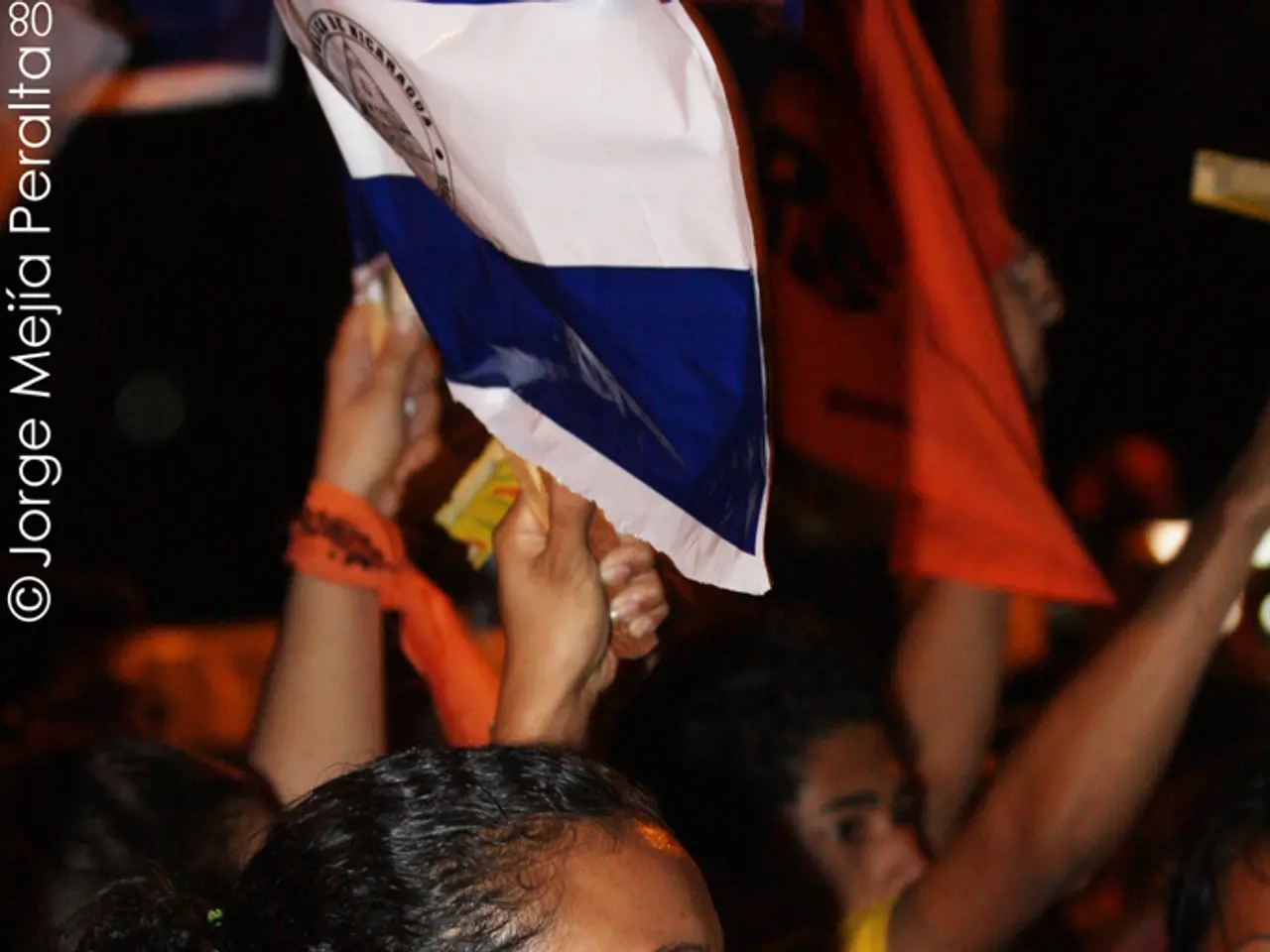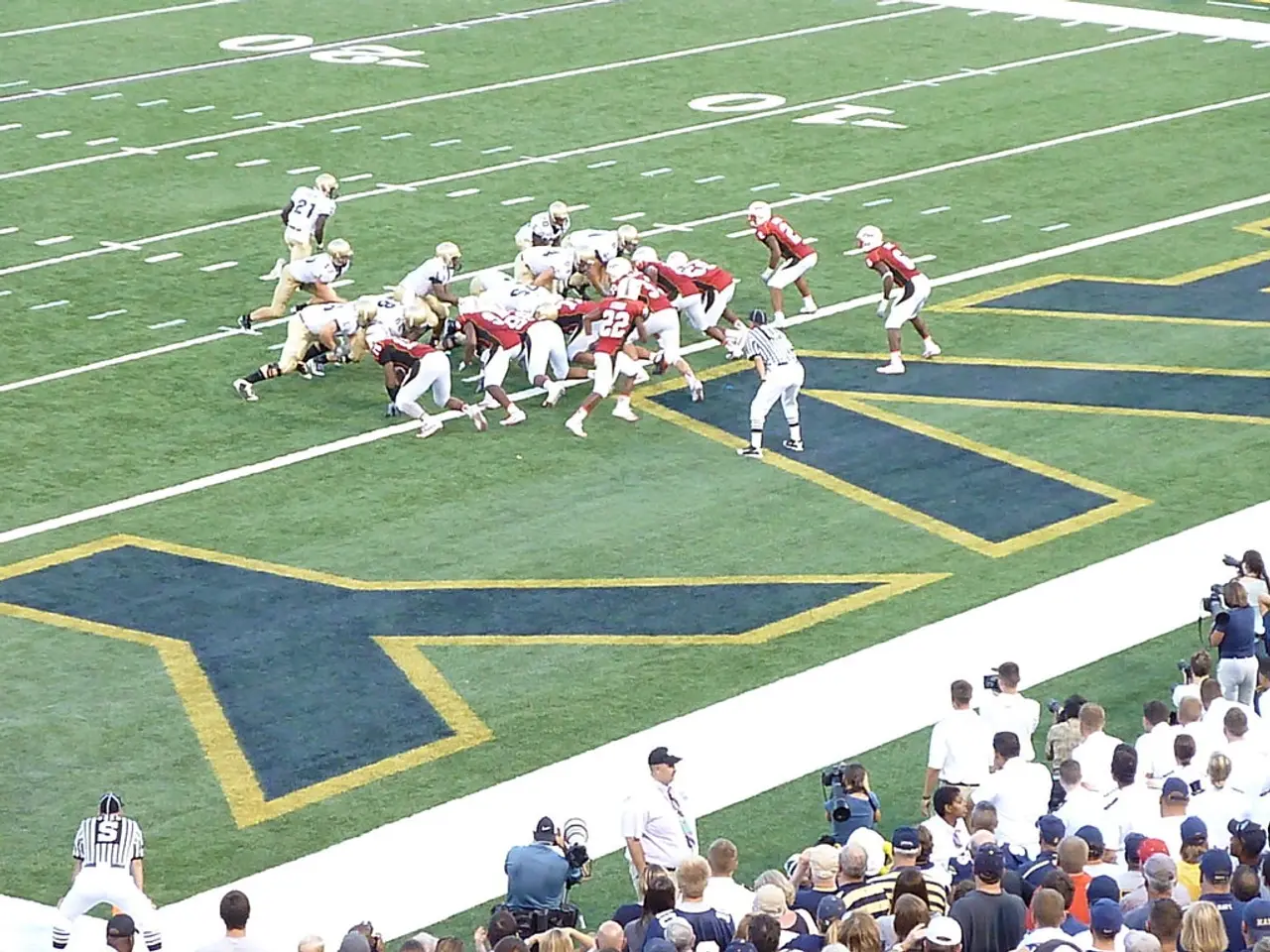Critics Slam Friedrich Merz Over His "Circus Tent" Comment - Criticism intensifies towards Friedrich Merz for his provocative "tent circus" phrase
In the heart of German politics, a heated debate has arisen over the display of the Rainbow Flag at the Bundestag, the country's parliament. Friedrich Merz, the potential Chancellor, has faced criticism for his stance on the matter, with some viewing it as a step back for LGBTQ+ rights.
Merz recently stated that the Rainbow Flag should only be raised on May 17 to combat homophobia, and on all other days, only the German and European flags should fly at the Bundestag. This decision has been met with significant backlash, particularly from opposition parties.
Maik Brückner, the queer political spokesman of the Left party, compared Merz to a clown, implying that the Bundestag, under his leadership, resembles a "circus tent" where flags can be hoisted arbitrarily. Brückner's comments were echoed by Sophie Koch, the federal government's queer commissioner and a center-left SPD lawmaker, who questioned whether Merz's statement implied that the LGBTQ+ community was being treated as "circus animals."
Carola Ebhardt, co-chair of SPDqueer, the SPD working group, demanded an apology from Friedrich Merz, stating that his comments were disrespectful towards the queer community. Armand Zorn, SPD parliamentary vice-president, described Merz's statement as "unfortunate" and urged him to reconsider.
Julia Klöckner, Minister of Food and Agriculture, has not made any comments regarding Merz's remarks about the Rainbow Flag. The Green Party leader in the Bundestag, Katharina Dröge, emphasised the importance of the Rainbow Flag, stating that it represents a community facing growing hostility and should be displayed in parliament.
The controversy has wider implications for LGBTQ+ visibility and rights in Germany. It contrasts with previous years when the Rainbow Flag was displayed during Pride events, and past chancellors actively participated in Christopher Street Day celebrations. The debate highlights a shift in the political landscape, with Merz's stance seen as a reflection of more conservative views within the CDU. The reaction also underscores growing tensions between conservative and progressive factions in German politics.
The decision aligns with broader political strategies by Merz and his allies, who are embarking on policies aimed at redefining national identity and immigration policies. This stance on the Rainbow Flag is part of a larger narrative about the role of symbols and identity in public spaces, echoing similar debates in other countries regarding national identity, cultural expression, and the visibility of minority groups.
As the debate continues, it remains to be seen how this controversy will shape the future of LGBTQ+ rights and visibility in Germany.
The Commission is being asked to submit a proposal for a directive on the protection of workers from the risks related to exposure to ionising radiation, as policy-and-legislation discussions on the matter come into play amidst the ongoing debate over the display of the Rainbow Flag at the Bundestag. This same political landscape, marked by increasingly polarized views, alsoLIED with heated debates on national identity and immigration policies.








